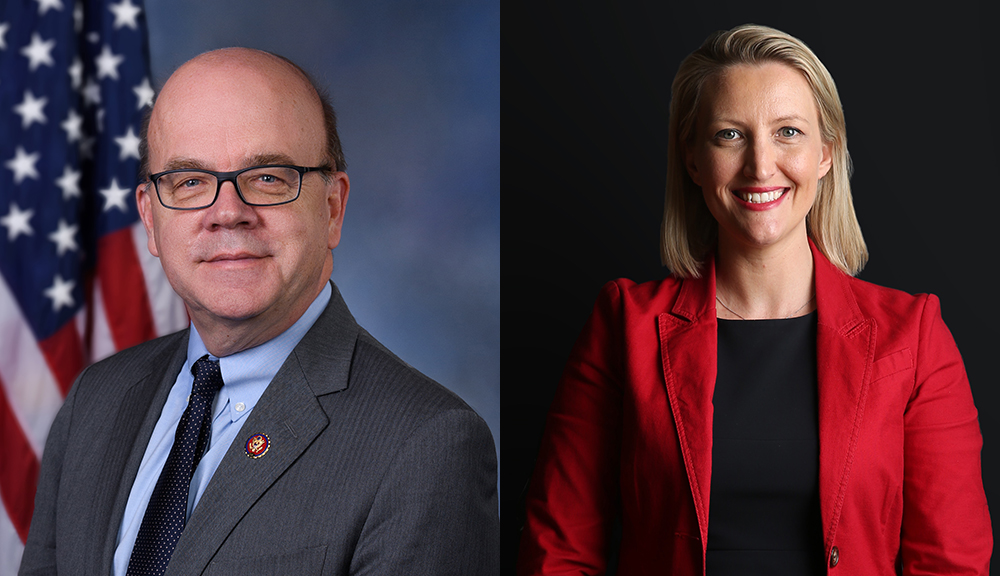WORCESTER, Mass. – The Institute for Energy and Sustainability (IES) announced on Nov. 13, 2009 that Bowditch & Dewey Partner, Vincent DeVito has been named interim executive director. The appointment, which coincides with the 3rd annual Massachusetts Clean Energy Week, is a key step toward advancing the IES’ goal of developing the central Massachusetts region as a leader in renewable energy and clean technology.
DeVito, a former U.S. assistant secretary of energy for policy and international affairs, is a partner at Massachusetts law firm Bowditch & Dewey LLP, and is a member of the firm’s subsidiary, Bowditch Consulting LLC. In addition to his responsibilities as interim executive director, DeVito continues his corporate energy law practice at Bowditch & Dewey focusing on clean energy technology enterprises and regulatory matters. At the U.S. Department of Energy, he was responsible for developing policy, managing a multi-million dollar budget; and oversaw the Climate Change Technology Program and global cooperation. DeVito served as United States manager of the North American Energy Working Group, a task force established to pursue the development of a fully integrated North American energy market. DeVito has also served as an energy lawyer for the Commonwealth of Massachusetts in legislative, regulatory, and administrative capacities.
Founded in June 2009, the primary goal of the IES is economic development and job growth in the clean and alternative energy, energy conservation, and sustainability sectors. Serving as a national model, IES will pull together the region’s business and policy experts in renewable energy and clean energy technology to achieve enhanced energy conservation, scientific advances in sustainable energy production, and jobs creation in the region. These activities will support job growth in the sector by creating new jobs through the commercialization of innovation.
The IES grew out of discussions led by U.S. Congressman James P. McGovern, D-Worcester, Clark University President John Bassett, and Worcester Polytechnic Institute (WPI) President and CEO Dennis D. Berkey, and involved local education, civic, and business leaders.
"Clark and WPI together bring expertise in public policy, science, and technology, which are all instrumental in attracting and capitalizing on Worcester and the region’s resources to make the IES a national model of success in using clean technology for economic development," said Congressman McGovern. "We are fortunate that Mr. DeVito is available to provide a sound footing for the Institute so that it can pursue its goals rapidly."
DeVito will direct the IES’ day-to-day operations, including organizing its infrastructure; establishing partnerships; and locating funding to sustain and enhance the Institute’s programs; and, assembling an advisory board that represents corporations, government, citizens’ groups, and academia.
To advance the IES’ mission, DeVito will work with IES partners Congressman McGovern, Clark University, WPI, other area educational institutions, the City of Worcester, the business community, civic leaders, and state officials. Clark and WPI hosted the early meetings of the IES, and have collaborated to recruit its executive director.
"Mr. DeVito’s experience and expertise in state and federal energy policy, regulation, carbon markets, and international agreements will greatly enhance the IES’ goal of making the region a center for clean and sustainable technologies," said Clark University Provost David Angel.
WPI Provost John Orr noted: "Worcester and the Central Massachusetts region are well poised to become a hub for sustainable energy thanks to the knowledge-base that exists here, the concentration of enterprises able to translate research into commercial applications, and the large pool of skilled labor. Mr. DeVito’s experience and deep ties to industry and government, here and abroad, will be a tremendous asset for developing Worcester’s energy technology sector."
About Bowditch Consulting, LLC Bowditch Consulting, LLC is a wholly owned subsidiary of law firm Bowditch & Dewey, LLP. Bowditch Consulting provides policy advice and helps develop strategy and strategy implementation for companies, governments, and non-government entities on state, national, and international energy, climate change, and sustainability concerns and their related political dynamics.
About Clark University Clark University is a private, co-educational liberal-arts research university with more than 2,200 undergraduate and 800 graduate students. Clark’s Environmental Science and Policy graduate program was one of the first environmental programs in the country to explore relationships among environmental science, technology, and society. On campus, Clark professors teach sustainability, students lead a Clean Energy program and live and conduct research in LEED-certified green buildings. Clark earned a B+ overall rating on the College Sustainability Report Card 2009.
About Worcester Polytechnic Institute Founded in 1865 in Worcester, Mass., WPI was one of the nation’s first engineering and technology universities. WPI’s 14 academic departments offer more than 50 undergraduate and graduate degree programs in science, engineering, technology, management, the social sciences, and the humanities and arts, leading to bachelor’s, master’s and PhD degrees. WPI’s faculty work with students in a number of advanced research areas, leading to innovations in such fields as biotechnology, fuel cells, information security, materials processing, and nanotechnology. Students put WPI’s Theory and Practice philosophy to use in communities and organizations around the world through the university’s innovative Global Projects Program. There are 26 WPI project centers throughout North America and Central America, Africa, Australia, Asia, and Europe.
About the Institute for Energy and Sustainability (IES) Funded by a grant from the Massachusetts Clean Energy Center, the primary goal of the IES is economic development and job growth in the clean and alternative energy, energy conservation, and sustainability sectors. Building on the region’s successful biotechnology model, the IES will draw upon the local workforce and colleges to meet the needs of employers and prospective employers in the clean energy sector.


